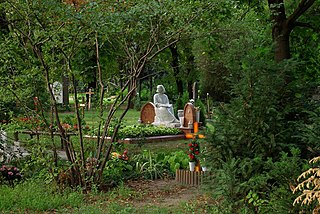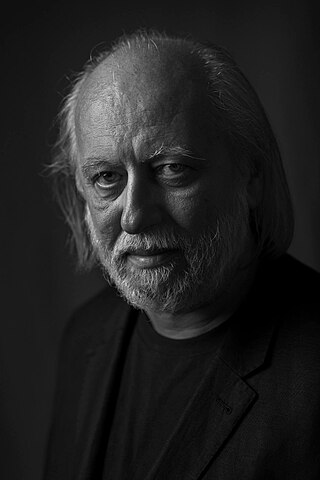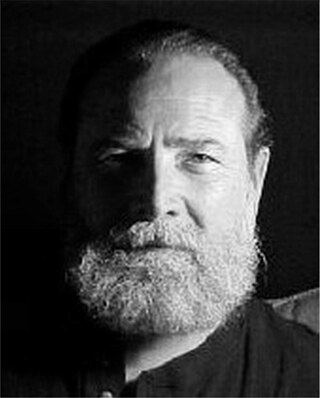Related Research Articles

Attila József was one of the most famous Hungarian poets of the 20th century. Generally not recognized during his lifetime, József was hailed during the communist era of the 1950s as Hungary's great "proletarian poet" and he has become the best known of the modern Hungarian poets internationally.

Gyula is a town in Békés County, Hungary. The town is best known for its medieval castle and a thermal bath. Ferenc Erkel, the composer of the Hungarian national anthem, and Albrecht Dürer the Elder, the father of Albrecht Dürer, were also born in Gyula.

George Szirtes is a British poet and translator from the Hungarian language into English. Originally from Hungary, he has lived in the United Kingdom for most of his life after coming to the country as a refugee at the age of eight. Szirtes was a judge for the 2017 Griffin Poetry Prize.

Kerepesi Cemetery is the most famous cemetery in Budapest. It is one of the oldest cemeteries in Hungary, and has been almost completely preserved.

Gyula Illyés born Gyula Illés was a Hungarian poet and novelist. He was one of the so-called népi writers, named so because they aimed to show – propelled by strong sociological interest and left-wing convictions – the disadvantageous conditions of their native land.

László Krasznahorkai is a Hungarian novelist and screenwriter known for difficult and demanding novels, often labeled postmodern, with dystopian and melancholic themes. Several of his works, including his novels Satantango and The Melancholy of Resistance, have been turned into feature films by Hungarian film director Béla Tarr.

Gyula Krúdy was a Hungarian writer and journalist.

The Grand Principality of Hungary or Duchy of Hungary was the earliest documented Hungarian state in the Carpathian Basin, established in 895 or 896, following the 9th century Magyar invasion of the Carpathian Basin.
Gabor G. Gyukics is a Hungarian American poet and literary translator. He is known for translating American poetry to Hungarian and Hungarian poetry to English. Gabor G. Gyukics is a member of the Szépírók Társasága – Hungarian Society of Writers, Critics and Literary Translators

Peter Hargitai is a poet, novelist, and translator of Hungarian literature.

Hungária körgyűrű is the longest and busiest boulevard, also the widest city street in Budapest, Hungary. It is 13 km long and has 6-10 traffic lanes with a rapid tram line on the median of the boulevard. It consists of three parts: Róbert Károly körút, Hungária körút and Könyves Kálmán körút.
Thomas (I) Szécsényi was a Hungarian powerful baron and soldier, who rose to prominence during King Charles I's war against the oligarchs. He belonged to the so-called "new aristocracy", who supported the king's efforts to restore royal power in the first decades of the 14th century. He was the first member of the influential Szécsényi family.

Géza Röhrig is a Hungarian actor and poet. He is best known for his role in the 2015 film Son of Saul, which won the Grand Prix at the 2015 Cannes Film Festival, the Golden Globe for Best Foreign Language Film and the Academy Award for Best Foreign Language Film.
The Battle of Olšava was an engagement of Bohemian and Hungarian troops near the Olšava River along the frontier of the two realms in May 1116. The event started as a peaceful meeting between the young Stephen II of Hungary and Vladislaus I of Bohemia, according to Hungarian chronicles. The Czech Cosmas of Prague wrote that the Hungarians came to the border to provocate a war.

The World Goes On is a collection of twenty-one short stories by László Krasznahorkai. Originally published in Hungarian by Magvető in 2013, it was later translated to English by John Batki, Ottilie Mulzet, and George Szirtes and published in 2017 by New Directions Publishing.

Magvető is a Hungarian book publishing company based in Budapest. It primarily publishes domestic and international works of literary fiction.
Péter Zollman was a Hungarian-born scientist, research physicist, engineer, inventor and translator of literary works.
References
- ↑ "The Hungarian Quarterly, VOLUME XLIX * No. 192 * Winter 2008". Archived from the original on 2009-02-06. Retrieved 2009-10-14.
- ↑ "John Batki | Penguin Random House".
- ↑ "Search : The New Yorker". www.newyorker.com. Archived from the original on 2011-06-07.
- ↑ "rugrabbit.com | Antique Rugs and Carpets | Asian Art | Tribal Art". www.rugrabbit.com. Retrieved 2024-03-19.
- ↑ "John Batki". Archived from the original on 2009-08-23. Retrieved 2021-10-13.